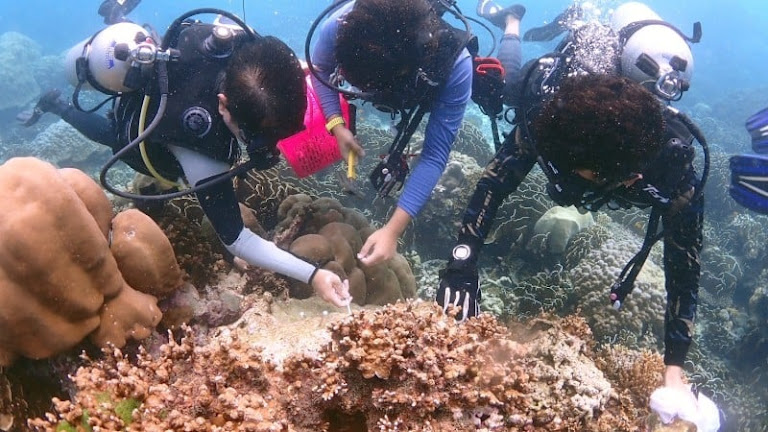Surin Islands Shipwreck Reveals Tourism Threat to Coral Reefs
Cargo ship grounding on Surin Islands reefs exposes slow blue coral growth and a B12 million damage bill for Thai authorities.

The grounding of the MV Ayar Linn near Thailand’s Surin Islands serves as a stark reminder of the complex interplay between global trade, local economies reliant on tourism, and the often-invisible costs borne by fragile ecosystems. As reported this week, Thai authorities are seeking significant compensation for the extensive damage inflicted on the coral reefs, a price tag that barely scratches the surface of the long-term environmental consequences.
The incident, involving a cargo ship laden with cement and diesel fuel, highlights a system where the externalities—the costs not directly paid by the actors involved—are disproportionately shouldered by the environment and local communities. While the shipment of cement represents a link in the chain of global supply, and the diesel fuel powered the vessel’s journey, neither cost calculation seems to have adequately accounted for the potential ecological disaster should something go wrong.
This isn’t just about one errant ship. It’s about the systemic risks inherent in an economic model predicated on continuous growth, where increased shipping traffic translates into a higher probability of accidents in ecologically sensitive zones. The fact that the MV Ayar Linn, by all accounts, poses an ongoing threat despite efforts to lighten its load, underscores the challenge of mitigating the impact of such events.
The damage assessment reveals the depth of the problem. The destruction of blue coral, which grows at a glacial pace of just half a centimeter per year, is particularly concerning. The slow recovery rate of these ecosystems means that the consequences of this single incident will reverberate for decades. The immediate response—including the involvement of the Royal Thai Navy, marine scientists, and even local Moken communities—demonstrates a clear understanding of the urgency. But even the ambitious salvage operation scheduled for later this month is just the beginning of a long and arduous restoration process.
Consider these factors:
- The financial cost of B12 million is a starting point for the damage; it does not fully encompass the lost tourism revenue for the islands' surrounding communities.
- The ecological cost of reef damage—the slow death of marine species and long rehabilitation period.
- The operational challenges of a salvage and restoration mission in such an environment.
- The need to create stronger regulations for ship safety.
That last point highlights an obvious solution. But such regulations also add costs, meaning these discussions typically bring up arguments over economics and incentives.
The situation becomes even more complex when considering the broader context of Thailand’s marine conservation efforts. Her Royal Highness Princess Sirivannavari Nariratana Rajakanya’s foundation is playing a crucial role in supporting marine ecosystem restoration and biodiversity. This highlights the importance of high-level intervention in addressing environmental challenges, but also raises questions about whether such efforts can truly scale to meet the magnitude of the problems arising from unchecked economic expansion.
The Surin Islands wreck is a microcosm of a global challenge: how to reconcile the demands of economic progress with the imperative of environmental protection. It is a challenge that demands more than just reactive measures; it requires a fundamental rethinking of our economic models and a willingness to internalize the true cost of our actions.
The Surin Islands incident is a wake-up call. It highlights the need for a more integrated approach to environmental management, one that considers the full life cycle of economic activities and holds those responsible accountable for the environmental damage they cause. It is a reminder that the health of our planet is inextricably linked to the health of our economies, and that ignoring the former will ultimately undermine the latter. The salvage operation is important. The coral replanting initiative is important. But, perhaps most importantly, changing global incentives is crucial.









